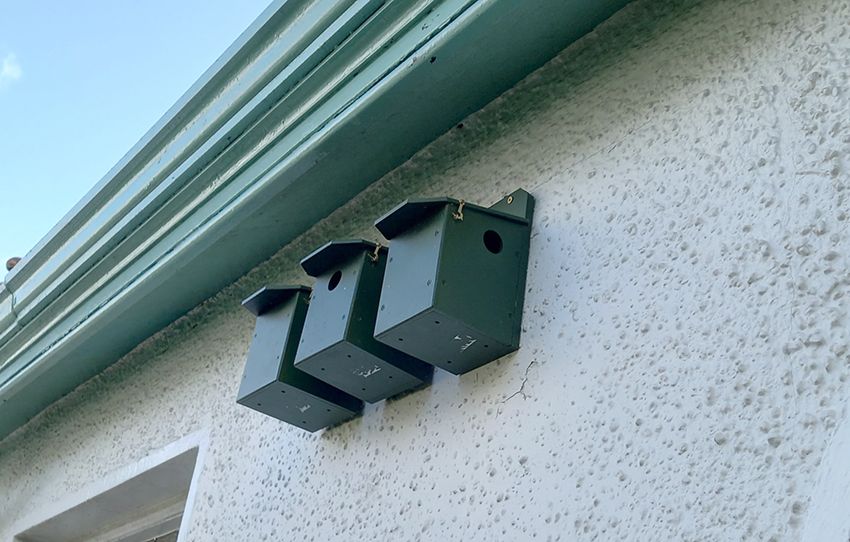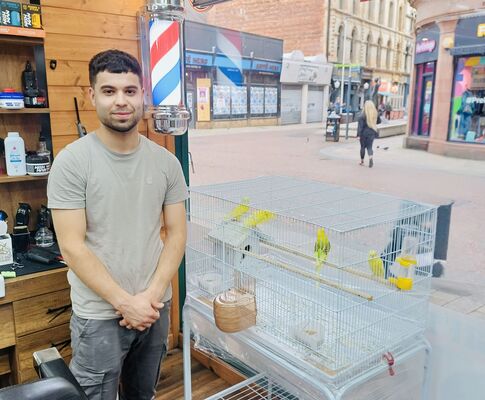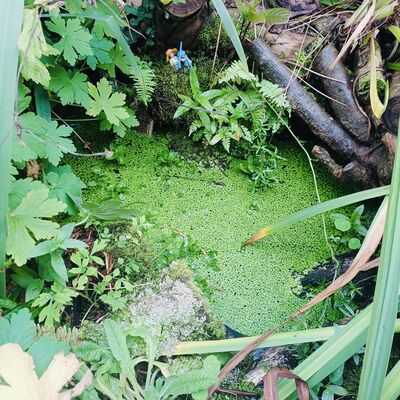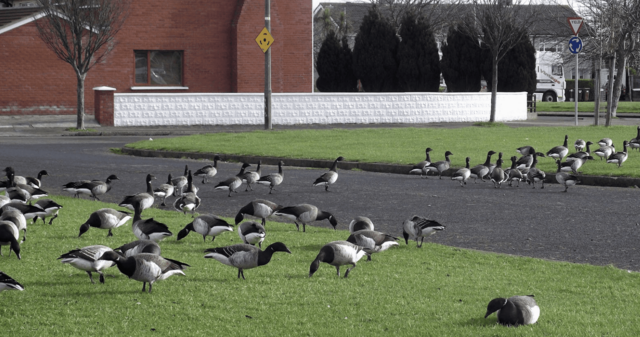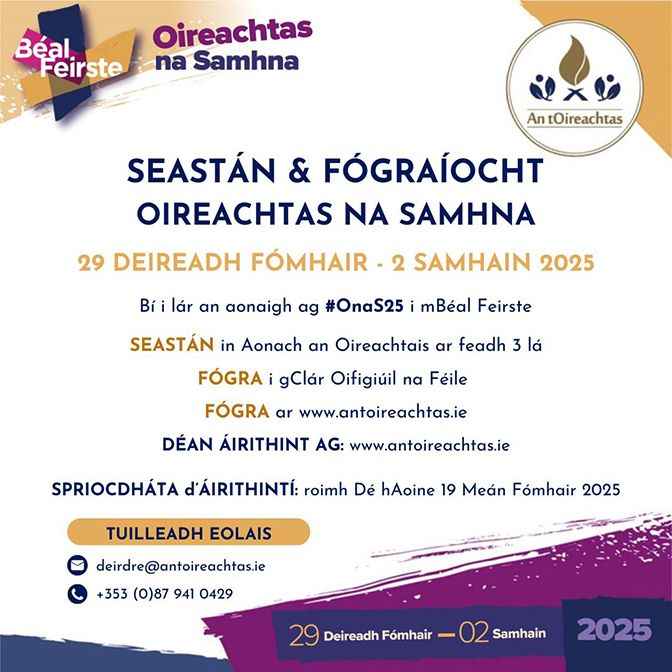WHAT do you have to do to attract the everyday, common-or-garden house sparrow to your home?
That was going through Dúlra’s mind this week when he was putting up the ultimate nestbox which had been purpose-built for a wee bird whose numbers are falling rapidly. Or to be more accurate, three nestboxes, all designed to sit alongside each other – a left, a right and a centre box with holes pointing in different directions.
Sparrows love each other’s company so they are much more likely to use a nestbox if the extended family can move in next door. Then they can share out all the parental chores and the kids can all keep each other busy just like in a nursery school.
If you have house sparrows in your garden, you take them for granted. Most people don’t appreciate them, and why would you when they’re just like a garden fixture?
House Sparrow @ #ECNR ☀️#emeraldwildlife #nature #birds #wildlife pic.twitter.com/XImkuy0YMm
— 🍀Emerald Wildlife 𝕴𝖗𝖊𝖑𝖆𝖓𝖉🇮🇪 (@EmeraldWildlife) May 3, 2021
But take them away, and you’ll find a (tiny) hole in your life. It’s not just the ‘chirp’ that you didn’t even realise you hear every time you set foot outside, but it’s their very chirpiness that Dúlra misses most. These birds aren’t really wild, not in Dúlra’s opinion, they’ve been domesticated over thousands of years. While we’ve forced countless species into oblivion, the humble house sparrow has shrugged its shoulders and told us: bring it on.
When we cut and trim and mow and knock down and build, most birds will scatter in terror, but sparrows hang around. Way back in the mists of time they made a decision to partner up with us, and it’s paid off handsomely.
They backed a winner – THE winner. We’re the apex species right at the top of the food chains. Nothing has been allowed to stand in the way of our progress. In the last few hundred years we’ve made a thousand animals extinct, experts predict one million species will become extinct in just a few more decades as the human stranglehold on the world tightens.
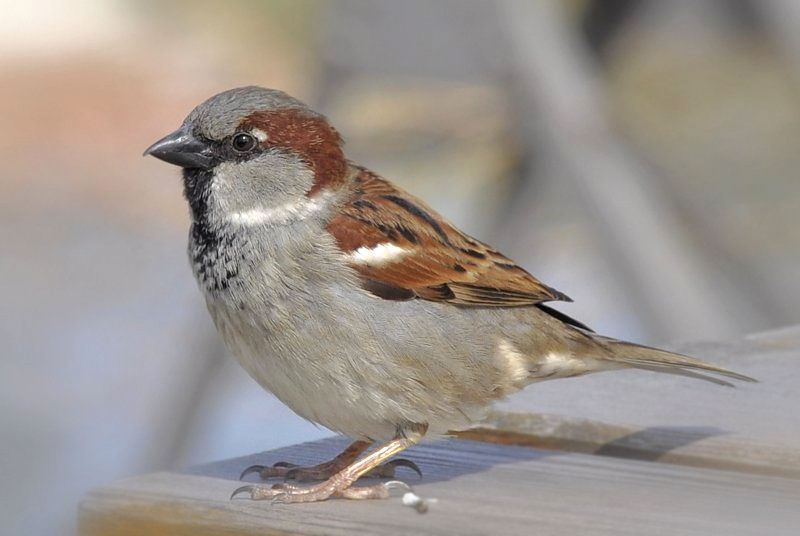
But the humble house sparrow, gealbhan tí in Irish, has been victorious, climbing the evolutionary ladder by our side. Before long it won the crown of the most widely distributed bird in the whole world and the second most common. Then something inexplicable happened. It found itself most vulnerable in the very place it originated, Western Europe.
Some experts reckon the reason for its decline – 40 per cent in Ireland in the last few decades – is that car fumes are killing the insects and bugs the sparrows need to feed their young in the first critical days of their lives.
But Dúlra is certain of what caused its disappearance from his estate at least: lack of nest sites. As buildings become more precise with each passing year, the once-common crevices at the corner of a roof or under a broken slate that give the house sparrow shelter have disappeared.
Today in Belfast, you’ll find these birds aplenty in downtown streets of terraced homes. You’ll even find flocks of them in certain areas, like the hard shoulder of the M2 where they feed on the spill of the lorries from Andrews flour mill, or down the docks, where again they’ll gather to feed on any overflow from lorries coming off the ferries. But go to any newbuilds, and the silence is deafening.
Dúlra’s estate isn’t new, but he guesses that somewhere along the line it was given a total refit and every nook and cranny was filled in. The sparrows were made homeless overnight. In the past couple of years he’s had a few flying visitors; earlier this year a pair of parents and their chicks arrived from a neighbouring estate. And each time he opened the back door, the once-familiar chirp brought back warm memories. When Dúlra was a kid, one nested in a gap in the roof right outside his bedroom window and the chirps were like an alarm clock every morning.
This week he decided to take affirmative action. This conjoined set of three boxes was ordered on the internet and he has just screwed them to the wall outside his bedroom window. They’ve been made to sparrow specifications from recycled car seats, which, the makers boast, keep out predators and the bad weather. Who knows, Dúlra's derriere may have once warmed that very car seat.In Dúlra's eyes, these homes are irresistible. This spring, he prays he'll be woken up once more by the chirps of one of our most underrated birds.
If you’ve seen or photographed anything interesting, or have any nature questions, you can text Dúlra on 07801 414804.
